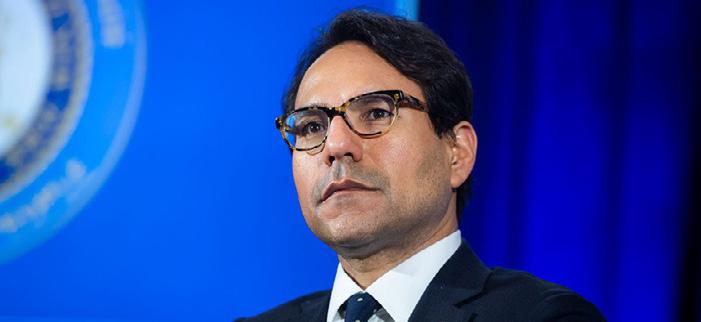
2 minute read
Fiscal board to PRASA: Time to fast-track shift to green energy sources
By THE STAR STAFF
The Financial Oversight and Management Board has instructed the Puerto Rico Aqueduct and Sewer Authority (PRASA) to start drawing energy from renewable energy sources as its operating expenses are too sensitive to variations in the electricity rates set by the Puerto Rico Energy Bureau (PREB).
Advertisement
The request is contained in a letter sent by the executive director of the oversight board, Robert Mujica, to Gov. Pedro Pierluisi Urrutia asking him to accept proposed revisions to PRASA’s fiscal year (FY) 2023 budget. The fiscal year started July 1.
The letter notes events that have hurt PRASA’s finances such as forgone service revenues as a result of a credit given to consumers last year and the substantial increase in chemical costs over the years.
The oversight board said it recognizes that during FY23 PRASA’s operations experienced events out of its control such as Hurricane Fiona. In the aftermath of Fiona’s passage, PRASA granted a service credit to all residential and commercial customers for an eight-day period in September 2022. While the oversight board said it is not opposed to awarding credits to customers that endured service disruptions, the untargeted nature of the credit also benefited customers that did not experience service disruptions throughout the emergency period.
The oversight board asked PRASA in October 2022 to submit a financial projection of the credit’s impact on PRASA’s operating revenues. PRASA’s initial estimate for the credit was about $10 million in forgone revenues. However, as of December 2022, PRASA’s estimate was revised to project over $18 million in forgone service revenues.
“Even though PRASA was able to apply nearly $8 million in federal funding, the revision to the operating revenue projections, as included herein, proves PRASA was not fully equipped to grant an untargeted credit to all of its customers,” the letter notes.
On the operating expense side, PRASA’s 2022 certified fiscal plan (CFP) calls on PRASA to implement a series of operational measures that may result in cost savings for both line items and set the foundation for long-term sustainability. Furthermore, the CFP requires PRASA to execute a formal agreement with the Puerto Rico Electric Power Authority (PREPA) to settle outstanding debts arising from disputed electricity expenses and water purchases. The water utility has been carrying significant outstanding debt with PREPA, which last year amounted to $70 million. In March, the oversight board approved a memorandum of understanding (MoU) between PRASA and PREPA to settle the total outstanding balance by a maximum payable amount of $42.5 million.
“As of the date of this letter, outstanding balances due to LUMA [Energy, the private operator of PREPA’s transmission and distribution system] amount to $40 million,” the letter notes. “As such, the oversight board advises PRASA to use the remaining electricity budget for FY23 to meet monthly electricity obligations.”
Regardless of the electricity savings identified for the FY23 budget and the progress achieved with the MoU debt settlement, PRASA’s operation remains highly sensitive to any variation in the electricity rates set forth by the PREB, Mujica pointed out in the letter.
“With electricity being the second largest operating cost in the FY23 budget, the [certified fiscal plan] calls on PRASA to implement initiatives that reduce such cost through alternate sources of renewable energy,” the letter notes. “Accordingly, PRASA must take advantage of the ongoing transformation in Puerto Rico’s energy sector to enable an accelerated schedule to eventually transition into more sources of renewable energy such as photovoltaic projects.”
The letter notes that since FY15, PRASA’s chemical expenditures have experienced a substantial increase – more than duplicating incurred costs in FY15 from $27 million up to $70 million for the remainder of FY23.
“These increases are partially attributed to significant amounts of water losses,” the letter notes. “PRASA has also mentioned the lack of warehousing capacity at its treatment facilities and differences in chemical consumption projections as key drivers requiring more chemical purchases. The water losses and operational limitations, coupled with the longterm underinvestment in PRASA’s water treatment facilities, have driven PRASA to operate a costly system in dire need of capital investments that promote operational sustainability.”










